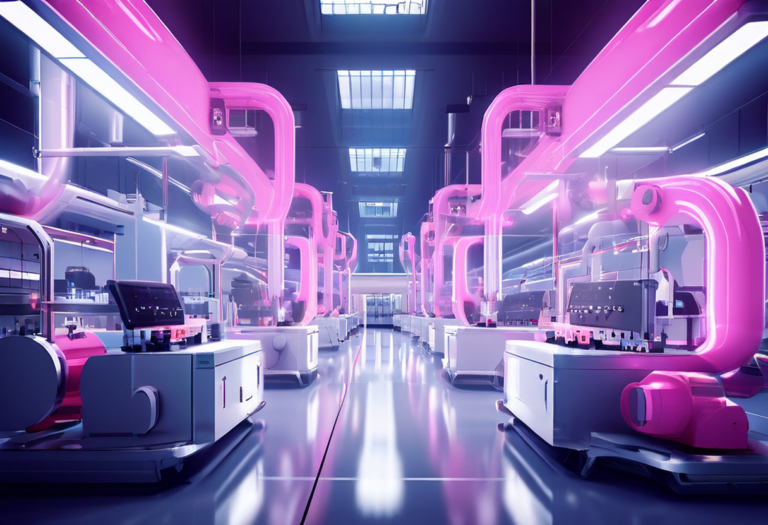How AI is Revolutionizing the Plastics Manufacturing Industry

In recent years, Artificial Intelligence (AI) has been making waves across various industries, and plastics manufacturing is no exception. From streamlining operations to enhancing product quality, AI is driving unprecedented gains in efficiency and innovation throughout the plastics value chain. Let’s explore some of the key ways AI is transforming this vital sector.
Boosting Operational Efficiency
Reducing Machine Setup Times
AI algorithms are revolutionizing machine setups by analyzing historical data and optimizing configurations. This smart approach has led to a 25% decrease in setup times, significantly enhancing overall manufacturing throughput.
Optimizing Employee Workflows
By analyzing performance data and task completion times, AI systems are identifying inefficiencies and suggesting optimal workflows. The result? A impressive 20% improvement in employee productivity.
Enhancing Production Line Speed
AI-driven systems are integrating with production line management to automate adjustments and optimize speeds. This has led to a remarkable 30% increase in production speed, allowing for faster order fulfillment and improved scalability.
Elevating Marketing and Sales
Personalizing Customer Engagements
AI is leveraging customer data to tailor marketing messages and product recommendations. This personalized approach has increased engagement rates by 40%, driving higher customer satisfaction and conversion rates.
Increasing Lead Conversion
By analyzing lead data and prioritizing prospects, AI is helping sales teams focus on the most promising opportunities. This targeted approach has boosted conversion rates by an impressive 50%.
Optimizing Advertising Spend
AI algorithms are fine-tuning ad placements, content, and spending, resulting in a 30% increase in ROI through more precise targeting and efficient budget allocation.
Enhancing Product Quality and Compliance
Real-Time Quality Monitoring
AI systems are continuously monitoring production processes, making proactive adjustments to prevent defects. This approach has reduced defective product rates by over 40%.
Ensuring Compliance with Standards
By tracking compliance in real-time and automatically adjusting processes, AI-driven systems are maintaining a 99% compliance rate with industry and international quality standards.
Improving Maintenance and Uptime
Reducing Unplanned Downtime
AI-powered predictive maintenance techniques are forecasting potential equipment failures before they occur. This proactive approach has decreased machine downtime by 20%, ensuring smoother production flows and lower maintenance costs.
The Future of Plastics Manufacturing
As AI continues to evolve, its impact on the plastics manufacturing industry is only set to grow. From smarter production lines to more effective marketing strategies, AI is helping companies stay competitive in an increasingly challenging market.
By embracing these AI-driven innovations, plastics manufacturers can look forward to improved efficiency, higher quality products, and more satisfied customers. The future of plastics manufacturing is here, and it’s powered by artificial intelligence.
